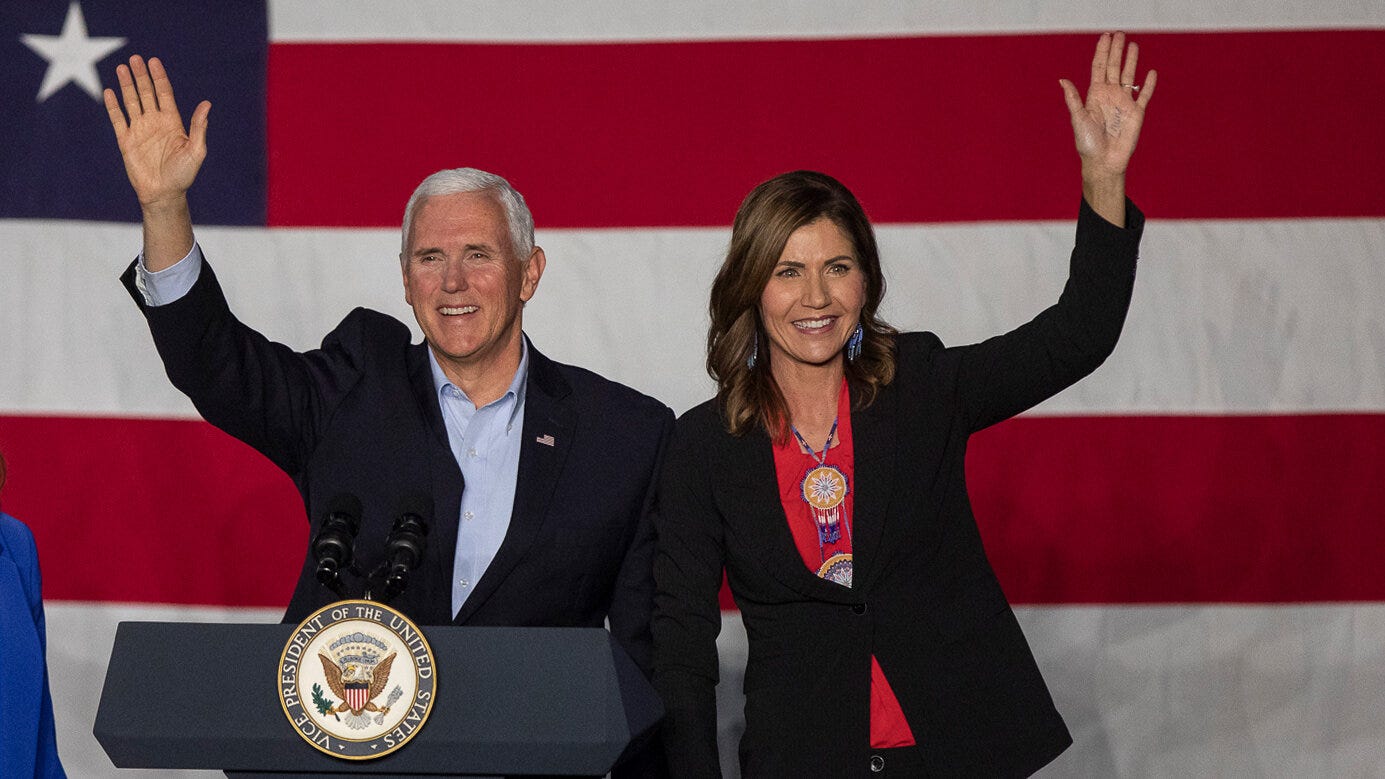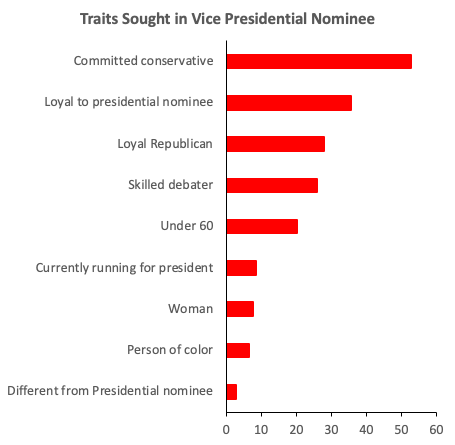We have a pretty good idea at this point whom Republicans will pick as their presidential nominee next year, but the vice presidential nominee is a good deal more mysterious. Given Donald Trump’s age, health, and litany of indictments, this is likely a more consequential decision than usual. But just whom might Republican leaders want? In my most recent survey of Republican county chairs, I asked them several questions about this decision.
Donald Trump picked Mike Pence as his running mate in 2016 for pretty sound strategic reasons — he wanted to lock down the evangelical Christian wing of the party, which was not yet staunchly in his corner. Today, there is likely no major faction in the party Trump is worrying about winning over, so it’s less clear just whom he might want.
There are many different values a party can use as a guideline for picking a VP. Where the candidate is from, how old they are, whether they’ve been running for president, etc., weigh heavily on the choice. But picks usually fall into one of two major categories: ticket-balancing (that is, picking someone from a different faction of the party, ideological position, or geographic region) and reinforcement (that is, picking someone who is in many ways similar to the presidential nominee and would carry on with their agenda). John Kennedy and Lyndon Johnson would be a great example of ticket-balancing, while Bill Clinton and Al Gore are a common example of reinforcement.
(Julia Azari and William Adler also note that Republican presidential nominees tend to pick more ideologically extreme running mates, while Democrats tend to pick more centrist ones, although that didn’t hold in 2020. Also it’s worth noting that Christopher Devine and Kyle Kopko examined VP choices systematically and found that they don’t have that much of an effect on the vote, although a good one can make the presidential nominee look better.)
In my survey, I gave county chairs a list of qualities they might want to see in a running mate and asked them which they thought were important; they could name as many as they want. Those traits were:
A committed conservative
Someone loyal to the presidential nominee
A loyal Republican
A skilled debater
Someone under 60
Someone currently running for president
A woman
A person of color
Someone with different political views from those of the nominee
The results are pretty clear: Chairs want a conservative who is loyal to the party and/or the nominee. (More than half said they wanted a committed conservative.) Debating skills came in a close fourth place. Youth was somewhat less of a priority. The categories of current candidates, women, people of color, and people with different views from the presidential nominee couldn’t break 10%.
To no small extent, the chairs were likely thinking of someone to pair with Trump, and clearly they’re not that interested in the guideline of ticket-balancing. Should Trump somehow not be able to finish a term, they want someone like him to replace him.
To further examine this, I broke the answers down based on whether the chair is considering Donald Trump for the presidency or not (about 60% are considering him).
(The following is for paying subscribers, and I encourage you to become one. It’s not that expensive!)
Keep reading with a 7-day free trial
Subscribe to Tusk to keep reading this post and get 7 days of free access to the full post archives.






